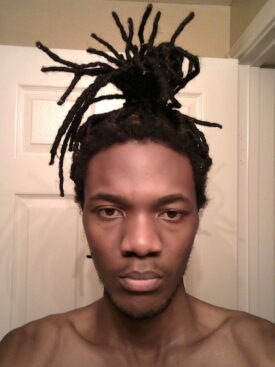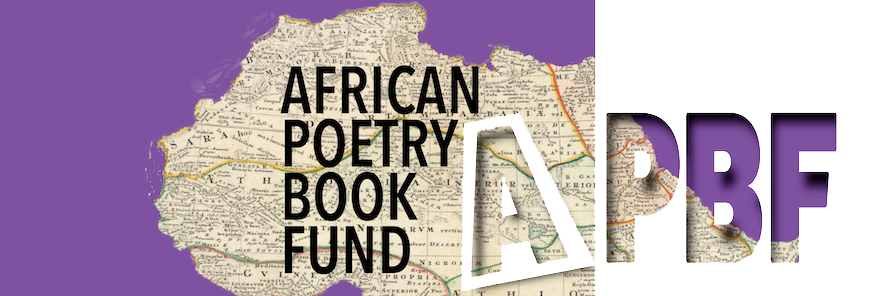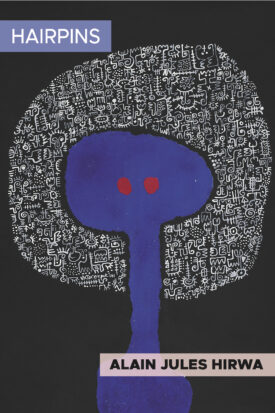Chapbook Chats: Tryphena Yeboah Interviews “Hairpins” Author Alain Hirwa
To celebrate the launch of the latest New-Generation African Poets Chapbook Box Set series, Tryphena Yeboah is talking to poets whose chapbooks are included in New-Generation African Poets: A Chapbook Box Set (Tisa). This series continues with a conversation between Tryphena and poet Alain Jules Hirwa. The interview was conducted via email and has been lightly edited for publication.

Tryphena Yeboah: Congratulations on being selected as part of the 2023 New-Generation African Poets series! What a wonderful time for you, and a tremendous contribution to the growing body of African poetry in the world. What are your thoughts and feelings about this news?
Alain Hirwa: Thank you! When I started writing poetry, it was one of my biggest dreams to be in such spaces as the ones the African Poetry Book Fund offers. This is a dream come true! I wrote the poems in “Hairpins” and its extended version about four years ago. A lot has changed. There is a big distance between the person I have become and the person I was writing the poems, and I find outgrowing issues explored enabling me to better appreciate these poems, the conversation they hold, and their position as artworks.
TY: In Hairpins, you write about migration and the constant wrestle of navigating notions of home and belonging—of a country, and of oneself. How does your Rwandan heritage influence how and what you choose to write about?
AH: To the “how”, Rwanda has a strong culture of beauty. A quick example is amasunzu, our traditional hairstyles. Though a little unrelated, that is one example of different experimental beauties growing up in Rwanda exposed me to. Rwanda has a beautiful language too, Kinyarwanda. To the “what”, Rwanda is still so conservative that young people like me who grow up exposed to liberal ideas, through social media and films, end up estranged from our own home and culture.
TY: The poem “Bird Migration” strikes me at once as dealing with migration, but also its dehumanizing consequences, collective memory, and the compulsion to forget the past. What draws you to the form of poetic sequence and are there any writers or poems that have influenced your approach to the craft?
AH: I love long stories. Film series, novels, concept albums, fashion shows, photo books, and so on. They are my reference points when it comes to the form. I love the hunger present in endless things. The way one stanza, one episode, makes you crave for what’s next. I also find it satisfying reading a poem that imitates a novel by not leaving out any gaps.
TY: As a selectee for this year’s new generation series, you have become part of the APBF African poets “family”. What does it mean to be part of a growing body of contemporary poets emerging from the continent?
AH: It means a lot. This is a community of people creating beauty and archiving our times. There is a lot of revolutionary movements going on in Africa. If I am possibly one of the few Rwandans to publish a poetry book in English in the US, that shows you how much this community is a movement, and it is a blessing and responsibility to be part of this.
TY: What does being an African poet mean to you?
AH: Being an African poet is a responsibility to elevate the culture by challenging it to contain us, a youth whose ideas have outgrown our elders’, all done through the documentation of our beautiful lives. Our continent is populated by many corrupt governments, poverty, classism, homophobia, etc. Being an African poet is creating the country, the continent of our dreams, on the page.
TY: Your first chapbook is out in the world and I hope this is not too daunting of a question to ask, but I’m eager to hear what projects you’re currently working on and if you have any exciting works in the pipeline?
AH: I am doing street photography. My vision is to publish photo books in the future. Every now and then I find myself returning to Teju Cole’s Blind Spot, and I am finding a way to combine both poetry and photography. There is this saying that poetry is impossible, or rather only exists in the moment, in the experiences. Making “poetry” a translation of real poetry. With that, I find photography IS sometimes able to capture a certain level of poetry that the written word leaves out. Currently, I am trying to immerse myself in the expansion of what I can do as an artist. I want to make my future projects not just books but shows and experiences.
Alain Hirwa is a creative based in San Marcos, TX. His work has appeared in Wasafiri and The Carolina Quarterly. He is a student at Texas State University.
Tryphena Yeboah is a Ghanaian writer and the author of the poetry chapbook, A Mouthful of Home, selected by the New Generation African Poets Series. Her fiction and essays have appeared in Narrative Magazine, Commonwealth Writers, and Lit Hub, among others. She is currently a Ph.D. student at the University of Nebraska-Lincoln, studying English with an emphasis in Creative Writing.

